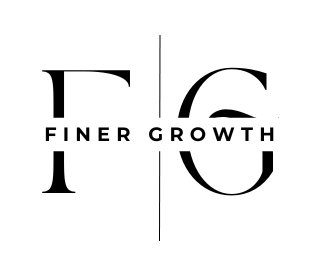Table of Contents
Introduction
Managing your personal finances effectively is key to building wealth and achieving financial security. Yet, many people struggle with saving, budgeting, and investing due to a lack of knowledge or discipline. In this guide, we’ll break down the essentials of personal finance and provide practical steps to help you take control of your money in 2025.
1. Understanding Personal Finance: Why It Matters

Personal finance is more than just saving money—it’s about making smart financial decisions that allow you to grow your wealth and secure your future. Whether you’re looking to get out of debt, start investing, or improve your money habits, managing your finances wisely is crucial for long-term success.
Key Areas of Personal Finance:
✅ Budgeting – Tracking income and expenses to manage spending effectively.
✅ Saving – Setting aside money for emergencies and future goals.
✅ Investing – Growing your money through stocks, real estate, and other assets.
✅ Debt Management – Reducing and eliminating high-interest debt.
✅ Retirement Planning – Preparing for financial independence in later years.
2. How to Create a Bulletproof Budget
A budget is the foundation of financial success. It helps you control spending, avoid debt, and save for your future. Follow these steps to build a budget that works for you:
Step 1: Calculate Your Income
Determine your total monthly income from all sources, including salary, freelance work, side hustles, or passive income streams.
Step 2: Track Your Expenses
Identify your fixed and variable expenses:
- Fixed Expenses (rent, utilities, loan payments)
- Variable Expenses (food, entertainment, shopping)
Step 3: Use the 50/30/20 Rule
This budgeting method helps allocate your income effectively:
🔹 50% for needs (rent, bills, groceries)
🔹 30% for wants (entertainment, dining out)
🔹 20% for savings and investments
Step 4: Cut Unnecessary Spending
Look for areas where you can reduce expenses—cancel unused subscriptions, cook at home, or switch to cost-effective alternatives.
Step 5: Automate Savings
Set up automatic transfers to your savings and investment accounts to build wealth effortlessly.
3. The Importance of an Emergency Fund
Life is unpredictable, and financial emergencies can happen at any time. Having an emergency fund can prevent you from falling into debt when unexpected expenses arise.
How Much Should You Save?
Financial experts recommend saving at least 3-6 months’ worth of living expenses in an emergency fund.
Where to Keep Your Emergency Fund?
🔹 High-yield savings accounts
🔹 Money market accounts
🔹 Short-term certificates of deposit (CDs)
4. Smart Investing Strategies for Beginners
Investing is one of the best ways to build wealth over time. If you’re new to investing, start with these simple strategies:
Step 1: Understand Different Investment Options
✅ Stocks – Buying shares in companies to earn potential profits.
✅ Index Funds & ETFs – Low-risk investment options that track market performance.
✅ Real Estate – Investing in rental properties or REITs (Real Estate Investment Trusts).
✅ Cryptocurrency – Digital assets like Bitcoin and Ethereum (high risk, high reward).
Step 2: Start with a Low-Cost Index Fund
If you’re a beginner, index funds or ETFs are excellent choices because they offer diversification and lower risk compared to individual stocks.
Step 3: Use the Power of Compounding
The earlier you start investing, the more your money grows over time. Even small investments can lead to significant wealth in the long run.
5. How to Get Out of Debt Faster
Debt can slow your financial progress. If you have high-interest debt, such as credit card balances, take steps to eliminate it:
Method 1: The Debt Snowball Method
🔹 Pay off the smallest debt first while making minimum payments on others.
🔹 Once the smallest debt is cleared, move to the next one.
🔹 This builds motivation and momentum.
Method 2: The Debt Avalanche Method
🔹 Focus on paying off the debt with the highest interest rate first.
🔹 Helps you save money in interest over time.
Bonus Tip: Avoid taking on new debt unless it’s for an appreciating asset (like a home or education).
6. Passive Income: How to Make Money While You Sleep
If you want long-term financial security, passive income is a must. Here are some ways to earn money without actively working:
✅ Affiliate Marketing – Promote products online and earn commissions.
✅ Dividend Stocks – Invest in stocks that pay regular dividends.
✅ Selling Digital Products – Create e-books, courses, or printables.
✅ Rental Income – Earn money from real estate investments.
7. Retirement Planning: Secure Your Future
It’s never too early to start planning for retirement. The earlier you begin, the more you can benefit from compound interest.
Best Retirement Savings Accounts:
🔹 401(k) – Employer-sponsored retirement plan with tax benefits.
🔹 IRA (Individual Retirement Account) – Tax-advantaged retirement savings.
🔹 Roth IRA – Withdraw earnings tax-free after retirement.
8. Financial Habits That Lead to Long-Term Wealth
✅ Live Below Your Means – Spend less than you earn.
✅ Avoid Lifestyle Inflation – Increase savings instead of unnecessary spending.
✅ Keep Learning About Finance – Read books, follow financial blogs, and listen to podcasts.
✅ Surround Yourself with Financially Smart People – Your environment influences your money habits.
Final Thoughts
Mastering personal finance isn’t about being rich—it’s about making smart financial choices that give you freedom and security. By budgeting wisely, saving consistently, investing early, and avoiding unnecessary debt, you can build a solid financial future.
Start today and take control of your finances—your future self will thank you! 🚀






